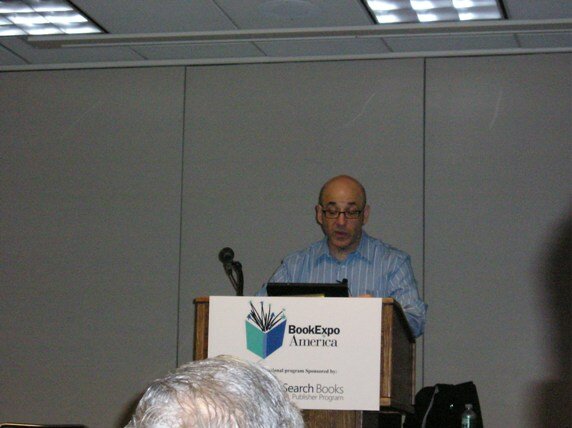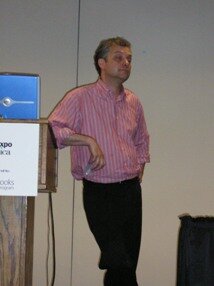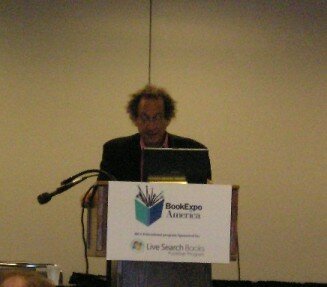SS in town, cult babycare book in tow
The cult babycare book, 'Dr Spock Baby and Childcare', is being Indianised as international publishing house Simon Schuster opens its Asian operations...
New Delhi, Aug 7 (IANS) The cult babycare book, 'Dr Spock Baby and Childcare', is being Indianised as international publishing house Simon & Schuster ...
E-Books turn the page: As apps leap into interactivity, can humans keep up?
Whenever an industry expands at an astonishing rate, everyone wants to join the club. And in the e-book industry, it's become a very crowded clubhouse...
Multitude of e-book apps enhancing the reading experience
Whenever an industry expands at an astonishing rate, everyone wants to join the club. And in the e-book industry, it's become a very crowded clubhouse...
Rise of e-books will benefit one group: Readers
The rise of e-books and e-book reading devices is shaking up the publishing industry, but everyone agrees that readers will benefit.......
Books: Adjusting to a Changing Readership
By Claire Walla The closing of the Borders chain of bookstores two weeks ago served as another reminder to those in the book biz of how fragile the in...
NPR Bestsellers: Week Of August 4, 2011
A survey of independent bookstores nationwide.......
NPR Bestsellers: Week Of Aug. 4, 2011
A survey of independent bookstores nationwide.......
Free webinar: How to prepare a portfolio for the LSSC Program
CHICAGO - The Library Support Staff Certification Program ( LSSC ), a national certification program that allows library support staff to demonstrate ...
Customs bureau issues new policy on tax-free book importation
THE Bureau of Customs has issued new guidelines for duty and tax-free entry of imported books as contained on Memorandum Order (MO) 25-2011 to ensure ...
From news within the publishing industry to literary dispatches, here's your morning roundup from around the Web: Mathias Svalina dives into the quixo...
Facebook acquires Push Pop Press: bad news for publishers?
Publishing industry experts rue the (temporary, anyway) disappearance of a promising new form of e-book innovation.......
Building, Growing A Black Family's Media Dynasty
Linda Johnson Rice is the chairwoman of Johnson Publishing Company, which is responsible for Ebony Magazine and Jet Magazine. Rice talks about why she...
Britain Takes New Tack in Piracy Fight
The government introduced a broad overhaul to copyright laws aimed at bringing them up to speed with current technology and the fight against piracy. ...
They say that the best way to become a millionaire is to start off as a billionaire and buy an airline.a�The same thing could be said about the publis...
AASL's Exploratorium to showcase school library best practices
CHICAGO - The American Association of School Librarians ( AASL ), a division of the American Library Association ( ALA ), is making available its line...
Stock up on fun children's reading kits with PLA's summer sale
CHICAGO — From now until Aug. 31, 2011, take 40 percent off three unique children's reading kits from the Public Library Association ( PLA ). PLA an...
Facebook buys digital bookmaker Push Pop Press
Terms of the deal remain undisclosed, but the social network makes it clear that it won't be getting into the book-publishing industry. Originally pos...
Facebook acquires digital bookmaker Push Pop Press
The companies did not say how much Facebook acquired the firm for, but the social network made it clear it won't be getting into the digital-book publ...
AASL to sponsor four Spectrum Scholars at AASL national conference
CHICAGO - The American Association of School Librarians ( AASL ), a division of the American Library Association ( ALA ), will sponsor the attendance ...
 Windows Live Search is…Live
Windows Live Search is…Live






